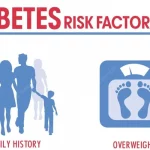Losing weight can be a frustrating and challenging process for many people. The journey to a healthier lifestyle is not always a straightforward one. There are numerous factors that can impact the success of your weight loss efforts, and one of the most crucial factors is your metabolism. Understanding your metabolism and how it affects weight loss can make a significant difference in achieving your goals. In this article, we will explore the science behind successful weight loss by delving into the intricacies of your metabolism. We will cover the basics of metabolism, how it affects weight loss, and provide tips and strategies to boost your metabolism and achieve optimal results. So if you’re looking to shed those extra pounds and improve your overall health, it’s time to dive into the science behind successful weight loss and unlock the secrets of your metabolism.
What is metabolism and how does it affect weight loss?
Metabolism is the process by which your body converts food into energy. It is a complex process that involves various chemical reactions that occur within your cells. The rate at which your body burns calories is known as your metabolic rate. Your metabolic rate is influenced by several factors, including genetics, age, gender, body composition, and lifestyle habits.
Your metabolic rate is the number of calories your body burns while at rest. This is known as your resting metabolic rate (RMR), and it accounts for up to 75% of the calories you burn each day. Your RMR is influenced by several factors, including your age, gender, weight, and body composition. This means that people with more muscle mass tend to have a higher RMR than those with a higher percentage of body fat.
The number of calories you burn each day is also influenced by your activity level. The more active you are, the more calories you burn. This is known as your total daily energy expenditure (TDEE). Your TDEE is the sum of your RMR and the calories you burn through physical activity.
Different types of metabolism
There are two types of metabolism: catabolism and anabolism. Catabolism is the process by which your body breaks down complex molecules into simpler ones, releasing energy in the process. Anabolism, on the other hand, is the process by which your body uses energy to build complex molecules from simpler ones.
Catabolism is the primary process involved in weight loss. When you consume fewer calories than your body needs, your body turns to its energy stores to make up the difference. This involves breaking down stored fat and using it for energy. Anabolism, on the other hand, is the primary process involved in weight gain. When you consume more calories than your body needs, your body stores the excess energy as fat.
Factors that affect metabolism
Several factors can affect your metabolism, including genetics, age, gender, body composition, and lifestyle habits. Some people are born with a naturally faster metabolism than others, which means they burn more calories at rest. Age and gender also play a role in metabolism, as metabolism tends to slow down with age and women tend to have a slower metabolism than men.
Your body composition also plays a significant role in metabolism. As mentioned earlier, people with more muscle mass tend to have a higher metabolic rate than those with a higher percentage of body fat. This is because muscle tissue is more metabolically active than fat tissue, meaning it burns more calories at rest. Lifestyle habits such as diet and exercise can also affect your metabolism. Eating a healthy, balanced diet and engaging in regular physical activity can help boost your metabolism and promote weight loss.
How to measure your metabolism
One way to measure your metabolism is through a resting metabolic rate (RMR) test. This test measures the number of calories your body burns at rest. During the test, you will be asked to lie down and relax for a period of time while your oxygen consumption is measured. This measurement is then used to calculate your RMR.
Another way to estimate your metabolism is through an online calculator. These calculators use factors such as age, gender, weight, and height to estimate your metabolic rate. While these calculators can provide a rough estimate, they are not as accurate as an RMR test.
Understanding your body composition
Your body composition refers to the percentage of fat, muscle, and bone in your body. Understanding your body composition is crucial for effective weight loss and improving your metabolism. As mentioned earlier, people with more muscle mass tend to have a higher metabolic rate than those with a higher percentage of body fat.
One way to measure your body composition is through a body composition analysis test. This test uses various methods such as bioelectrical impedance, skinfold calipers, or dual-energy x-ray absorptiometry (DEXA) to measure your body fat percentage, muscle mass, and bone density.
How to boost your metabolism naturally
There are several natural ways to boost your metabolism and promote weight loss. One of the most effective ways to boost your metabolism is through strength training. Strength training involves lifting weights or using resistance bands to build muscle mass. As mentioned earlier, muscle tissue is more metabolically active than fat tissue, meaning it burns more calories at rest. By building more muscle mass, you can increase your metabolic rate and burn more calories throughout the day.
Another way to boost your metabolism is through high-intensity interval training (HIIT). HIIT involves alternating periods of intense exercise with periods of rest or low-intensity exercise. This type of exercise has been shown to increase your metabolic rate and burn more calories than steady-state cardio.
Other natural ways to boost your metabolism include drinking green tea, getting enough sleep, and eating a balanced diet rich in protein, fiber, and healthy fats. Drinking green tea has been shown to increase metabolism and promote weight loss. Getting enough sleep is also crucial for a healthy metabolism, as lack of sleep can disrupt hormones that regulate appetite and metabolism. Eating a balanced diet rich in protein, fiber, and healthy fats can also help boost your metabolism and promote weight loss.
The role of exercise in weight loss and metabolism
Exercise plays a crucial role in weight loss and improving your metabolism. As mentioned earlier, strength training and HIIT are two effective ways to boost your metabolism and burn more calories. However, any type of physical activity can help promote weight loss and improve your metabolism.
Aim for at least 150 minutes of moderate-intensity exercise or 75 minutes of vigorous-intensity exercise per week. This can include activities such as brisk walking, cycling, swimming, or dancing. The key is to find activities that you enjoy and can stick to long-term.
The importance of nutrition in weight loss and metabolism
Nutrition plays a vital role in weight loss and improving your metabolism. Eating a balanced diet rich in protein, fiber, and healthy fats can help boost your metabolism and promote weight loss. Protein is particularly important, as it has been shown to increase metabolic rate and reduce appetite.
Aim to include protein-rich foods such as lean meats, fish, eggs, and legumes in your diet. Fiber-rich foods such as fruits, vegetables, and whole grains can also help promote weight loss and improve your metabolism. Healthy fats such as those found in nuts, seeds, and fatty fish can also help boost your metabolism and promote weight loss.
Common misconceptions about metabolism and weight loss
There are several common misconceptions about metabolism and weight loss. One of the most common misconceptions is that eating small, frequent meals throughout the day can boost your metabolism. While it is true that eating small, frequent meals can help regulate hunger and prevent overeating, it does not significantly impact your metabolic rate.
Another common misconception is that certain foods such as spicy foods or grapefruit can boost your metabolism and promote weight loss. While these foods may have some minor impact on metabolism, they are not significant enough to cause significant weight loss on their own.
Conclusion
In conclusion, understanding your metabolism is crucial for successful weight loss and improving your overall health. Your metabolism is influenced by several factors, including genetics, age, gender, body composition, and lifestyle habits. By focusing on natural methods such as strength training, HIIT, and eating a balanced diet, you can boost your metabolism and promote weight loss. Remember that weight loss is a journey, and it takes time and effort to achieve your goals. With the right mindset, knowledge, and strategies, you can achieve optimal results and unlock the secrets of your metabolism.









